Get prepared! That was the main message delivered by a handful of panelists who discussed the pending Strengthening Organic Enforcement (SOE) Final Rule (which will be released shortly) at the Organic Grower Summit (OGS) in Monterey, CA, last week.
John Foster of Wolf & Associates moderated the session and navigated his panel through some of the more challenging expected changes to the National Organic Program (NOP). He said this is the largest revision made to the NOP since its inception in 2002, adding that these changes are needed to preserve the organic integrity of the products that are sold under the USDA Organic label.
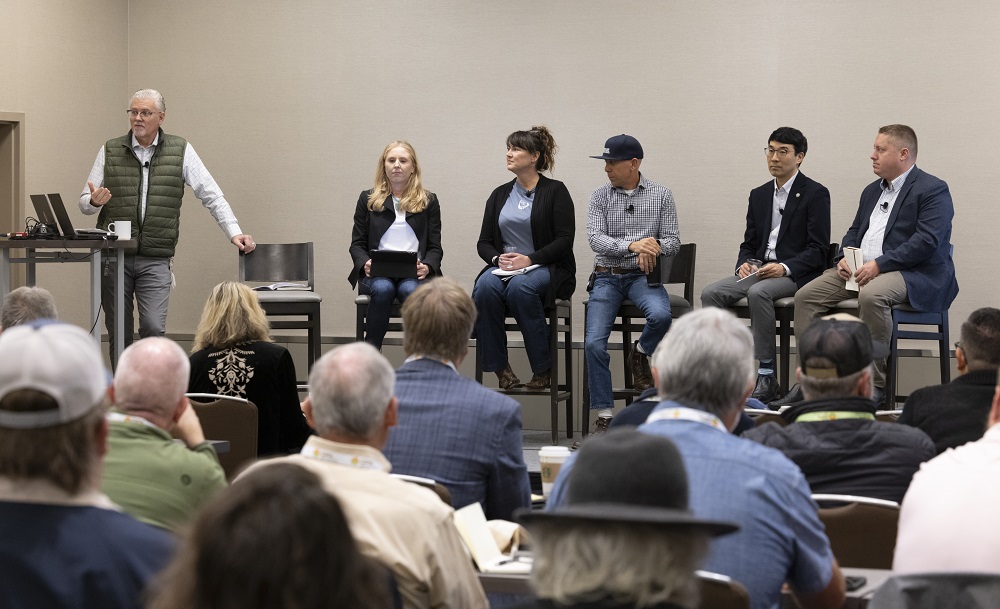
Get Ahead of the Curve and Avoid Regulatory Speedbumps panelists John Foster, Emily Musgrave, Connie Karr, Jake Evans, Robert Yang, and Tom Chapman
The panel of experts included Organic Program Manager Emily Musgrave of Driscoll’s, Certification Director Connie Karr of Oregon Tilth, CEO Jake Evans of True Organic Products, Organic Trade Association (OTA) Executive Director Tom Chapman, and NOP Accreditation Director Robert Yang.
John Foster said this is the largest revision made to the NOP since its inception in 2002, adding that these changes are needed to preserve the organic integrity of the products that are sold under the USDA Organic label.
Yang delivered the most newsworthy statement as he revealed that the USDA is only “weeks ahead” of publishing the Final Rule. The Proposed Rule was published in mid-2020 and generated more than 1,500 comments from industry stakeholders. USDA sifted through those responses and has produced the Final Rule. Yang noted the Final Rule is at its final stop in the Office of Management and Budget (OMB).
Once approved by that government agency, it will be published, followed by a 60-day waiting period before implementation and an additional 12 months prior to mandated compliance.
Robert Yang, NOP Accreditation Director, USDA
That timeline dovetailed perfectly with the panel's overarching message that these revisions are big; they are real; and they will require preparation from every company along the supply chain that interacts with USDA Certified Organic products—whether it be produce, dairy, meat, clothes, or a host of other consumer products goods.
Yang delivered the most newsworthy statement as he revealed that the USDA is only “weeks ahead” of publishing the Final Rule.
Yang, echoing the sentiments of virtually all the panel members, noted “this is the right time to take a look at your organization—and most importantly your supply chain.”
One of the big changes is that most companies will have to achieve organic certification in order to operate in the organic space. No longer will there be an exemption for companies that do not physically handle the product. As such, it appears to be a given that organic certification will be required of all supply chain members, including brokers, importers, and traders. Yang advised companies to pick a point person to thoroughly read the regulations when they are published and make sure that all supply chain partners understand they will need to be certified. The USDA, Yang noted, will be conducting webinars and other outreach efforts in 2023 to help familiarize everyone with the new requirements.
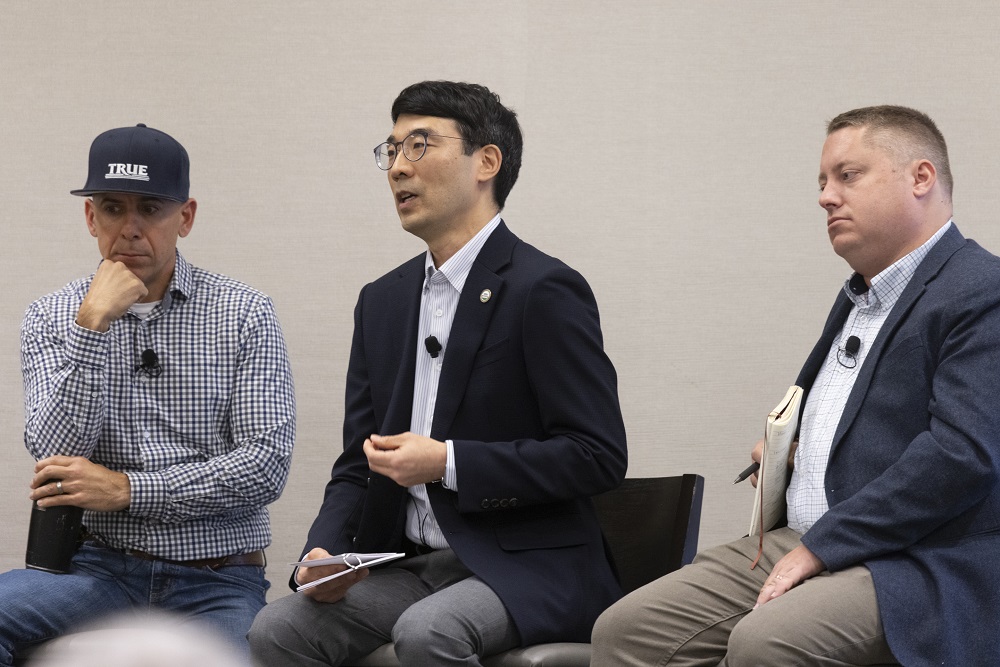
Each of the panelists revealed their take on the new regs and discussed various aspects of the expected SOE Final Rule. Musgrave focused on the new requirements for import certificates, noting that under the current provisions of the NOP only countries that have been recognized as having equivalent organic certification systems are required to include an import certificate provided by the company’s third-party organic certifier, vouching for the certification.
One of the big changes is that most companies will have to achieve organic certification in order to operate in the organic space. No longer will there be an exemption for companies that do not physically handle the product.
Currently, the import certificate requirement is limited to a handful of countries, including Canada, the European Union, Switzerland, and Japan. One of the largest organic-producing countries, Mexico, is not on that list. Once the new regulations are in full force, every load of organic produce from Mexico will have to be accompanied with an import certificate, signed by the certifier.
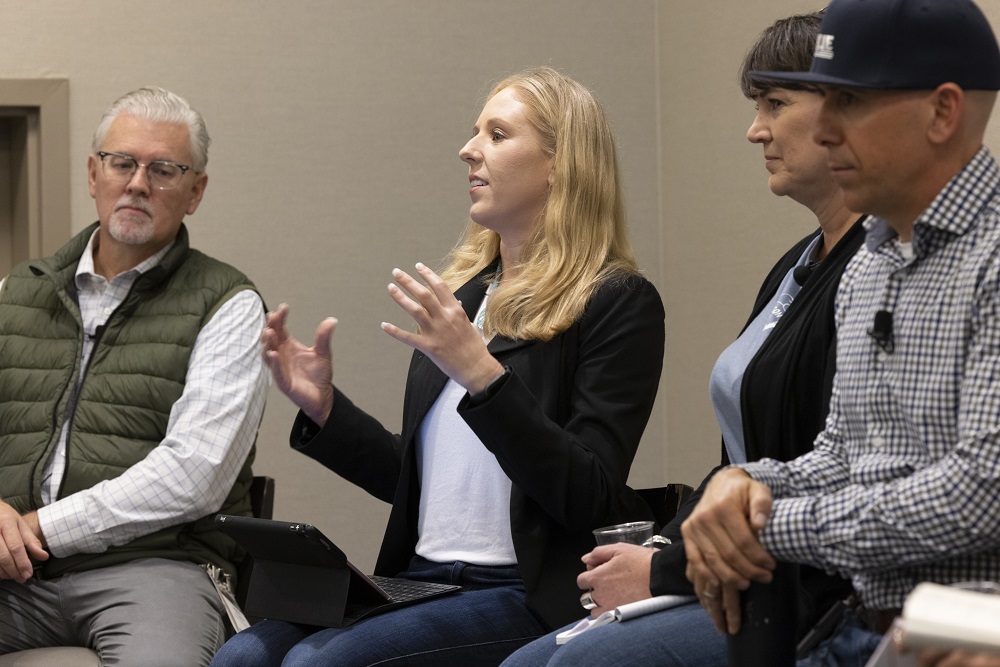
Musgrave said companies should contact certifiers early and get their own processes in line. “Be proactive; don’t procrastinate,” she said, noting that it will be a much greater challenge if you wait.
Foster reiterated that point, adding: “This will be enforced; it’s going to happen!”
Musgrave said companies should contact certifiers early and get their own processes in line. “Be proactive; don’t procrastinate.”
Oregon Tilth’s Karr characterized the new revisions as “a very positive thing for the entire industry” and advised companies to evaluate their own supply chains and do a fraud prevention analysis. The elimination of exemptions for specific companies along the supply chain is an effort to tighten up the system and ensure that the certified product is truly organic. Making all companies be certified, Karr said, is designed to “close loopholes within the supply chain.”
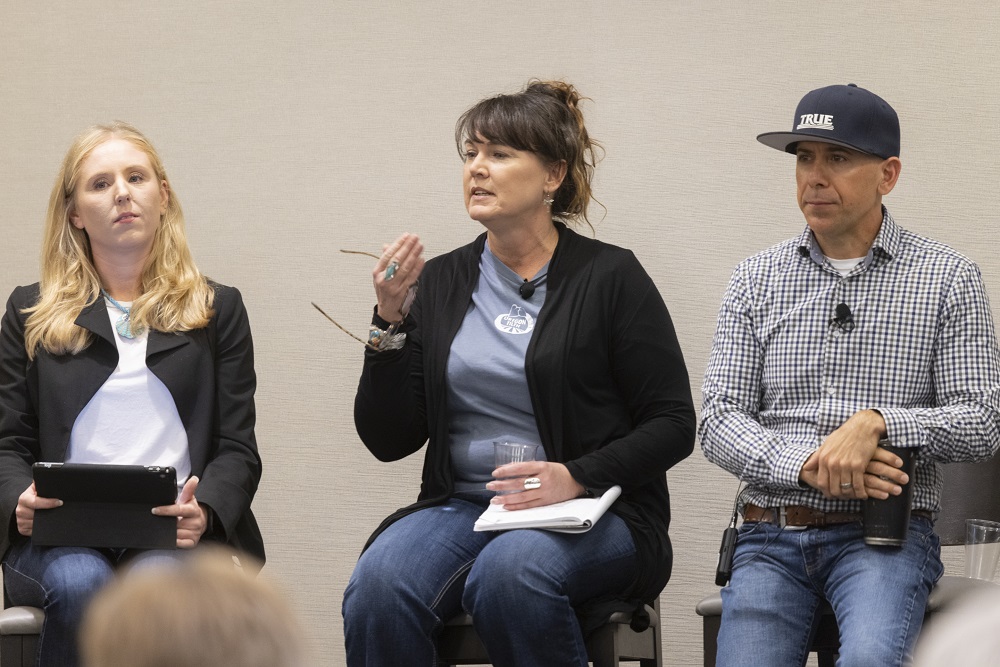
The new rule will also require additional work by certifiers, including more on-site inspections, additional risk-based supply chain audits, more training, and more paperwork. This increased work, Karr said, will most likely result in higher certification costs.
Making all companies be certified, Karr said, is designed to “close loopholes within the supply chain.”
Chapman of OTA discussed how the need for the new regulations reflect the fact that the organic sector has grown tremendously in the past 20 years, and it is a natural progression to have updated regulations. A larger part of the need has come about because of the great success of the organic sector.
Organic products get a solid premium, Chapman said, “making it really attractive for bad actors.” Those who fraudulently use the organic seal give a bad name to the industry and the seal itself.
The USDA Organic label commands a premium because the consumer trusts the seal and the value-added proposition that accompanies it, Chapman said. Fraud on any organic product damages the seal and eats into that trust.
Organic products get a solid premium, Chapman said, “making it really attractive for bad actors.”
Evans of True Organic Products discussed the same issue when it was his turn to chime in. “When organic integrity is compromised, your value is devalued,” he said, adding that when products are being sold as organic that do not meet the standards, it negatively impacts the brand. “They are stealing from you every day.”
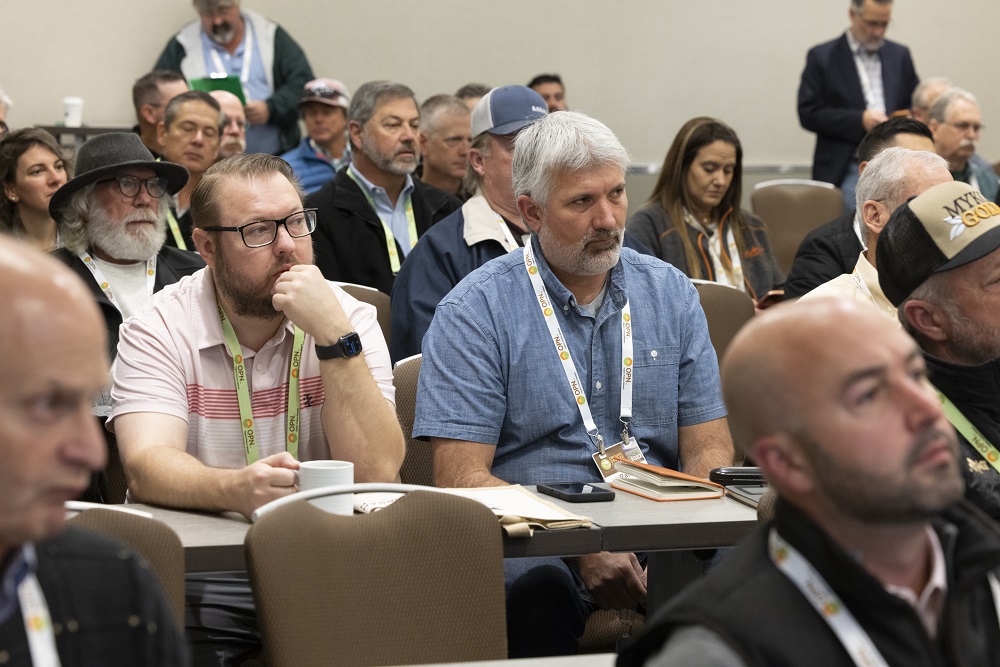
The good actors in the industry need to be proactive and file detailed reports with authorities when there is suspected fraudulent activity, Evans said. In fact, Evans said those in the industry know when someone is being certified that doesn’t deserve it. “Pass that on to authorities; end the bad actors.”
Evans expressed some skepticism that the new mandated import certificates will solve the problem of fraudulent imported product, noting that he has not seen major penalties imposed on bad actors in foreign lands. In the US, there are serious consequences to abusing the seal, including heavy fines and even prison time, and enforcing those penalties discourages fraud.






